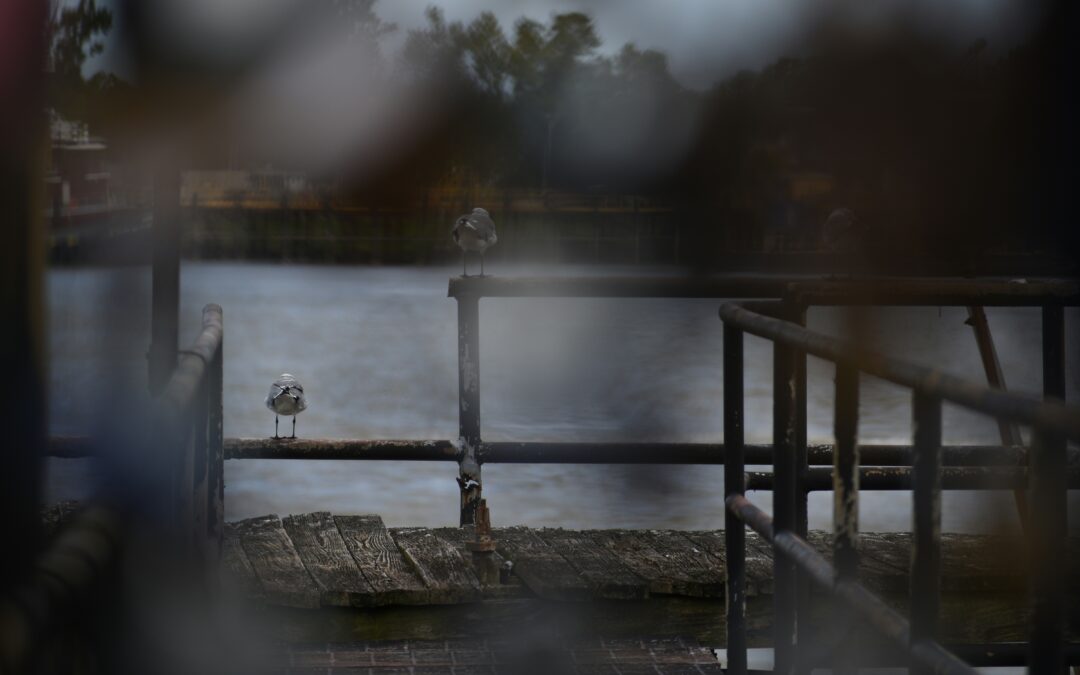
by Khalisa Rae | Sep 22, 2025 | flash fiction
In Low Bone Parish, the water don’t knock. It just rises. Quiet at first, like breath
held too long. It slicks along the bayou’s edge, kisses porch steps, then swallows
whole towns without a word. Folks call it a natural disaster. But the women on our street
know better.
“The water comes when the women stop singing,” Nana always said, voice soft as
river moss.
That year, the river came early, slinking in through cracked windows and dreams. Mama said
it was just a storm. Said the levees would hold. Told us not to speak my sister’s name near
the door. As if names invited things in. But Nana just rocked slow on the porch, humming
a song with no words, just sound passed down from throats long turned to dust.
Then came the morning my sister disappeared.
She was eight.
Wore her yellow dress, the one with the ruffled sleeves that made her look like joy
pressed into cotton. She danced around the kitchen that morning, humming
to herself, sticky with syrup and sun. By noon, she was gone. The search party came
late and left early. Sheriff Jenkins said it was the current. Said little girls shouldn’t
be out near the water. As if that river weren’t stitched into our veins, baptized
into our bones. All they found were her shoes neatly placed side by side at the edge
of the marsh. Filled with mud. Like she’d stepped out of them and floated up.
Mama didn’t cry for two days. She just scrubbed the same floorboard over and over,
like she could erase the silence. Like grief was dirt that could be wiped away.
“She ain’t coming back,” Mama whispered on the third day. “That water took her.”
“No,” Nana said. “That water called her.”
Mama turned, eyes wild, face hollowed out like something eaten by time. “Don’t
start with that, Ma. Not now. Don’t bring your stories into this.”
Nana stood, slow and sure, like roots straightening themselves. “You forget what
you come from. You forget what we know. That girl didn’t drown. She got summoned.”
That night, I couldn’t sleep. My sister’s laugh
kept skipping across the floorboards. I
swore I heard her tapping on the window, soft like rain. I dreamed of her
underwater, skin glowing like moonlight on moss. And I woke with her name in my
mouth. I told Nana I wanted to find her. She didn’t flinch. Just pulled a small pouch
from under her apron—dried rosemary, a lock of my sister’s hair, a piece of rusted iron.
“You take this and walk barefoot,” she said.
“The river don’t hear shoes.”
Mama blocked the door.
“You really gonna let her walk into that thing?” she asked. “Let her be next?”
“I’m letting her remember,” Nana said. “We all forgot too much.”
The river felt warm, like it recognized me. It parted soft around my ankles,
whispering in a voice I almost knew. I walked deeper, Nana’s pouch pressed against
my chest. The water rose to my waist. Then my shoulders. Then everything else
went quiet.
Down there, the current spoke in hums and hushes. I saw women floating with their
eyes closed and their mouths open, singing songs with no sound. Girls twirled
through the silt, their dresses trailing like jellyfish, glowing in colors I don’t have
words for.
I saw her.
Not exactly her. But her shape. Her light.
She looked back at me with those big eyes of hers, and for a second, the water
stopped moving. She didn’t speak, but I heard her.
“I’m not afraid of ghosts. Just people.”
Then she smiled, kissed my hand, and the current pulled her gently into the dark.
When I came up, the moon had shifted. I don’t know how long I was gone. Nana was
waiting at the edge of the porch, a blanket in her arms. She wrapped me in it and held me without asking questions.
Mama came out a few minutes later. Her eyes met mine, full of something raw and wordless.
“You see her?” she asked.
I nodded.
And finally, Mama broke. She sank into the steps, her sobs folding into the night
like thunder after the flash. Nana sat beside her, their shoulders touching, not speaking,
not needing to.
The next morning, we sang.
Me. Nana. Mama.
We sang her name like a hymn, like a warning, like a door that still remembers how
to open. Let it stretch through the trees and over the water. Let it echo back.
And the river
for once—
listened.
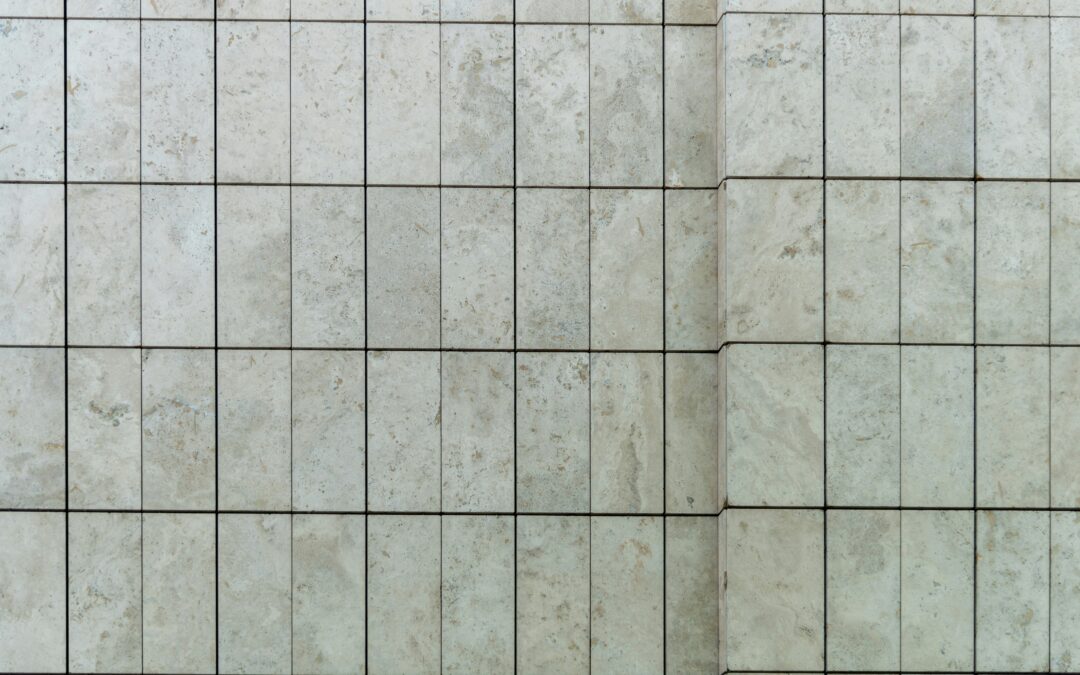
by Thomas Kearnes | Sep 20, 2025 | flash fiction
I’m clean. I was clean five minutes ago. I scrubbed every inch of skin, washed my hair twice. Now I stand as the water streams over my body. The shower curtain is clear plastic. On the other side, standing before the mirror, Henry shoots the dope into his arm. I can’t see him with any clarity. All I see is the shape of his body, the minimal movements of his arms. He told me to stay in the shower until he was finished. Can’t stand being watched, he said. This is private, he said. You don’t need to see this. I wanted to say, I love you. Show me everything. But I said nothing. I snorted my share of the dope earlier. I was just starting to feel it, so I agreed to shower. Henry said he liked his boys clean. Can’t stand fucking a dirty boy. The water starts to cool. I’m running out of heat. I’ve never used the needle; I always believed that was too much, so I’m not sure how much time to give him. Surely, he must see himself in the mirror with its water spots spattered along the bottom of the glass. What does he think, gazing at his reflection as the dope sprints through his veins? Are you finished, I call out. The bathroom’s acoustics make my voice sound hollow, dead. Just another minute, he says, the words coming with difficulty. Once, soon after we started fucking, he asked me if I wanted to try it, to shoot up. It’s incredible, he said. You look in the mirror and forget who you are. But I said no. I tried to say I love you, but all that came out was no. The water now carries a distinct chill. I wrap my arms around myself, but they’re wet like the rest of me. There’s nowhere to go. Are you all right, I call out just to hear the sound of my voice. I hear, Oh, God. Oh, fuck me. Jesus fucking Christ. But I know I’m not meant to hear. I stare at his distorted silhouette through the plastic curtain. What am I waiting to see? It’s June. The air conditioning hums outside the room. I am thirty-two years old. I know my mother loves me. I know my father loved me. No one should ever know how much. I don’t want to die in East Texas. Henry exhales so loudly, I wonder if he’s done. I’m so wet and cold. I could turn off the water and simply stand in the tub. No, the thought of silence terrifies me. Just then, Henry’s silhouette moves closer. He has left the mirror. He moves like a twister surging through a pasture. He wants to fuck me. Always, after he’s done, that’s what happens. He pulls back the curtain. He’s so handsome I forget my name. He may not recognize himself, but I will always know him. Baby, he says, still holding the curtain. Water splashes onto the tile floor. Baby, he says, you’re shivering. Gimme a smile, he says. I wasn’t gone that long. Don’t I always come back for you? I want to say I love you, but instead I simply say yes. In less than a moment, he will touch me, and I will remember the first time he touched me. I will remember everything.

by Deb Waters | Sep 15, 2025 | contest winner, flash fiction, publications
I’m at a wedding in the Languedoc. It’s the last weekend of September. I’m relieved the hot, cruel summer is almost over. There’s a woman on the table next to mine with bleached hair and a magenta mouth. She looks like an eighties rock star. I can’t take my eyes off her. She’s wearing gold hoops and a purple boob tube that’s so sheer it shows the contours of her uneven nipples. She took a call halfway through the vows, and now she’s heckling the groom.
“What’s her problem?” I say to the man beside me. He’s wearing a linen suit, a fedora and trainers. He’s an art director called Tim. Or Tom. I suspect we’re being fixed up. She stands on her chair and gestures like a footie fan: oggy, oggy oggy, oi oi oi. Other guests twitch and recoil, or try to outstare the remains of their cassoulet.
“Mattie? Oh, she’s been like that since the baby,” says Tim-Tom. When he talks, he views me from the corner of his eyes in shifty glimpses. There’s a smudge of butter in his auburn beard.
“Baby?” The air is warm and weighted, it presses on my head like kneading fists.
“She dropped it.”
“It?”
“A boy, I think.”
I think about my own child, as unplanned as the relationship I was in, and as yearned for, both barely formed before their pitiful endings.
“What happened?” I ask.
“Dropped him onto a coffee table.”
“A coffee table?”
Mattie sits down and leans back. She yells for champagne. Where the top’s shifted to show her tan line, her skin looks sore and neglected.
“It was an accident,” he says, as though my face suggests otherwise. “Wriggled out of her grasp and fell. Poor thing didn’t stand a chance.”
“Coffee table?” I’m a high-pitched echo.
“Yeah, one of those glass-top ones. It shattered, went everywhere.” He mimes a bomb going off. Not glass breaking, a bomb. Boom.
“Jesus Christ, that’s awful.”
Mattie stands up and staggers towards the bride. A crimson-clad bridesmaid intercepts, puts an arm around Mattie’s waist, and gently leads her away. Mattie’s laughter sounds like mating foxes. I reach for a half-empty bottle of wine.
“Her husband left her. Blamed the drinking.”
“Before or after?” I ask.
“Before or after what?”
I turn my head and use my fingertips to rub at the pain that’s forming in my skull. The waiter puts crème brûlées in front of us. Tim-Tom stretches his limbs and rubs his palms together; he has hairy arms but smooth, feminine hands that look like they don’t belong to him. He grabs a spoon and whacks the caramelised top; it cracks and splinters. Boom, he mimes again.
I push mine away. “You don’t want it?” he says, and takes mine.
I put my elbows on the table, rest my chin on my palms, and watch Mattie. She twirls and sways to Dancing Queen. Wary guests give her a wide berth. When “Copacabana” comes on, I drain my glass, scrape my chair back, and shimmy up to her. Mattie smiles and hugs me, though she doesn’t know who I am. She smells of cigarettes and almonds. We move around in a drunken clasp and when Tim-Tom joins us I those warm hands of hers in mine and lead her off the dance floor.

by Fractured Lit | Sep 14, 2025 | calendar, contests
Fractured and Fused Prize
AWARDING $3,500 + PUBLICATION
JUDGED BY Sherrie Flick
September 15 to November 16, 2025
This contest is closed. Thank you for submitting!
One of our goals is to provide flash writers with new and inspiring prompts to fuel their imaginations and produce inventive and fresh stories. We’ve designed a new contest based on the theme of “Fractured and Fused.”
We invite writers to submit to the Fractured and Fused Prize from September 15, 2025, to November 16, 2025.
Objects break and people shatter, but what’s fractured may be fused. For this contest, we’re looking for stories that utilize the tension and conflict in something being fractured, or that revel in the catharsis of someone finding what makes them complete after a shattering. We always want stories with realistic and monstrous characters, who refuse stasis, who would rather act and be wrong than sit out their lives silently. If it’s broken, find a narrative that fixes it; if it’s perfect, find the fissures and show us the cracks. Let your character get into trouble and work to find a way out, to take on the fractures, to sew them into their new identities. Get messy with character, structure, language, and plot. Fractured and Fused, but for the better.
Guest Judge Sherrie Flick will choose three prize winners from a shortlist. We’re excited to offer the winner of this prize $3,000 and publication, while the second- and third-place winners will receive publication and $300 and $200, respectively. All entries will be considered for publication.
We hope this prompt inspires you to create something outside of your normal routine that allows you to tap into the wellspring of your creativity and helps you tell the story only you can tell.
Guest Judge: Sherrie Flick
What I’m looking for in a piece of flash fiction is strong compression, great characterization, and a succinct but well-rendered setting. I’m very interested in voice, and I’m very interested in the concept of time. I love to be surprised, and I’m the biggest fan of excellent sentences and perfect titles. I’m not so much interested in experimentation for experimentation’s sake, but again, I love to be surprised. Bring me your sharp edges and uncovered truths. Let them resonate so that emotion rises up from it all.
Sherrie Flick’s recent awards include a 2023 Creative Development Grant from the Heinz Endowments and a Writing Pittsburgh fellowship from the Creative Nonfiction Foundation. She is the author of three story collections: I Have Not Considered Consequences, Thank Your Lucky Stars, and Whiskey, Etc., all published by Autumn House Press. Her debut essay collection, Homing: Instincts of a Rustbelt Feminist, was published by University of Nebraska Press. The essay “All in the Family: Waldo and His Ghosts” was listed as notable in The Best American Essays 2023. She is co-editor for the Norton anthology Flash Fiction America, served as series editor for The Best Small Fictions 2018, and is a senior editor at SmokeLong Quarterly. She served as the 2025 McGee Distinguished Professor in Creative Writing at Davidson College and recently joined the fiction faculty for West Virginia Wesleyan’s low-res MFA. She lives in Pittsburgh.
The deadline for entry is November 16, 2025. We will announce the shortlist within twelve to fourteen weeks of the contest’s close. All writers will be notified when the results are final.
OPTIONAL EDITORIAL FEEDBACK:
You may choose to receive editorial feedback on your piece. In your cover letter, please let us know which piece you’d like your editor to focus their review on. We will provide a two-page global letter discussing the strengths of the writing and the recommended focus for revision. Our aim is to make our comments actionable and encouraging. These letters are written by editors and staff readers of Fractured Lit. Should your story win, no feedback will be offered, and your fee will be refunded.
Guidelines
-
- Your $20 reading fee allows up to two stories of 1,000 words or fewer each per entry—if submitting two stories, please put them both in a SINGLE document.
- We allow multiple submissions—each set of two flash/sudden stories should have a separate submission accompanied by a reading fee.
- Writers from historically marginalized groups will be able to submit for free until we reach our cap of 25 free submissions. No additional fee waivers will be granted.
- Please send flash micro fiction only—1,000 word count maximum per story.
- We only consider unpublished work for contests—we do not review reprints, including self-published work (even on blogs and social media). Reprints will be automatically disqualified.
- Simultaneous submissions are okay—please notify us and withdraw your entry if you find another home for your writing.
- All entries will also be considered for publication in Fractured Lit.
- Double-space your submission and use Times New Roman 12 (or larger if needed).
- Please include a brief cover letter with your publication history (if applicable). In the cover letter, please include content warnings as well, to safeguard our reading staff.
- We only read work in English, though some code-switching/meshing is warmly welcomed.
- We do not read anonymous submissions. However, shortlisted stories are sent anonymously to the judge.
- All AI-generated work will be automatically disqualified.

by Linda Wastila | Sep 11, 2025 | contest winner, flash fiction
In those days, we woke with bedheads and foggy eyes and boggy brains, comfy in our slept-in yoga pants as we headed to the kitchen to make our pot of coffee, our go-to prop for endless hours of video conferences with others, also at home, also in yoga pants they’d slept in, mewling toddlers and barking dogs in the next room.
Those days, we positioned the computer monitor to cut off our chins so colleagues couldn’t see us play Two Dots or Minecraft or stream CNN or NPR on our phones; often, we typed in the chat box ‘iffy Wi-Fi’, turnedoff the video, and did downward dogs, washed dishes in the kitchen, took shits in the loo, walked the dog in the park, or took our lunch in the garden.
Those days, we slept in bedlinens upgraded to organic 800 count cotton and silk-lined weighted blankets to hug us in our dreams; we napped at our desks, on the living room couch, in hammocks on our decks, hammocks we didn’t use as much as we wanted but knowing they swung gently in breezy sunshine reminded us, briefly, of longer days at the ocean serenaded by singing seagrass, the keening gulls, the clean ozonated air.
In those days, we jockeyed for sidewalk rights with runners and bikers and electric scooters; we walked fast, to get our shrinking hearts to pump again, to break a sweat, to feel the heady rush of our breath re-inhaled through masks, and then, the cool release when, safe at home, we ripped them off, gasping.
In those days, respite came when our Apple Watch chimed 5 pm, and we replaced caffeine with Cabernet or gin-and-lime and/or a joint and sat outside in the garden or swung in that now less sunny hammock, and sometimes, something nudged our mind or heart and we wrote it down or, more likely, contemplated writing down the small thought that came unbidden, but mostly we worried about what to cook for dinner, those ceaseless meals, and because we didn’t often foray into the world, we had to work with what still-good greens and proteins languished in the fridge.
Those days, when the sun circled to the other side of the earth or, rather, the earth shifted enough to leave us in darkness again, we gathered our greens and proteins into a bowl, doused them with sriracha—we craved sensation of any type—and filled our glass again and sat on the couch.
In those nights, we streamed Netflix and Hulu and Prime—we’d never realized the variety of true crime dramas and cooking competitions and murder documentaries and porn—and between the substances and the carbs and the hum of the tube, sometimes that thought would crash again against the edges of our brain and noodle through it, a slinking worm.
Those nights, we flipped to Animal Planet and ratcheted up the volume; we relished the violence of the lioness’ take-down of the gazelle, the shark’s feeding frenzy, the queen bee’s deadly mating ritual, and our favorite episode, the one where lemmings migrate en masse across the tundra, diving from Alaskan cliffs into the solace of water smashing into rocks. After the fourteen-minute scene, we sat in silence for a moment, awed at the momentousness of the lemmings’ foolish mistake, at the little creatures’ persistence in going forward despite the risks of ending it all, and we wondered to ourselves, Don’t they realize they’re drowning? In those nights, we answered ourselves the same way—with a shrug—and we turned off the television and the lights and, with phones in hand, we mounted the stairs to our expensively-sheeted beds and doom-scrolled ourselves to sleep.

by Joseph V. Velaidum | Sep 8, 2025 | contest winner, flash fiction
She takes the empty urinal bottle from the nightstand and sets it aside quietly in a corner of the room. It was there for him to use when he couldn’t make it to the bathroom. The floor creaks beneath her as she bends over to pick up the package of adult diapers she bought last week. The package makes that sharp, plasticky sound as she tears it open, and she winces.
He stirs. “What’s this?” he says, voice cracked and small, barely able to get the breath to speak.
“You can’t keep peeing in the bottle,” she says. “I can’t clean it up anymore.”
He looks at the diaper she holds out to him, and then at her face. He doesn’t take it. She stands there and finally sets it on the nightstand, like an offering, and goes back to her side of the bed and removes her hearing aids for the night. She is trying to help him, she tells herself, but she knows that she is not physically able to care for him anymore, and wonders if she is being selfish. If he would just try to help himself, she thinks. But the thought brings with it a thick and choking gust of guilt.
These days, she cannot sleep very much; the pain in her legs is too much, so she was half-awake and watched it in slow-motion silence, against the backdrop of wafting snowflakes illuminated by a dull streetlight streaming in from outside. He tries to take the diaper off. Then he falls. She sees the fall, partially, but does not hear it. She doesn’t move for a moment. It’s like watching a plate fall—you watch it tip and you know how it will end. You try to reach out to catch it, but you only catch the edge, and somehow it seemingly accelerates its fall.
He has broken his hip, she knows. His second time. His voice, calling out for her, is sharp and frightened, and it cuts through her and slices something she thought she had already lost. She tells herself it isn’t her fault. He’s the one who got up. But she already knows how it will sound to other people. She knows he will say that he fell because she took away the bottle. She already hears the judgmental voices: maybe if you . . . you might have . . . if only . . .
When the present is too jagged and sharp to hold, she has always retreated into her distant past, but finds no solace there either. She goes back to that summer when their first child was born. The Guyanese heat was so relentless it felt solid, like something you had to push through to get anywhere. The baby had been sick for days. She asked him to take her to the doctor. He had said no, it was his day off, and he wanted to buy some rum and spend the day in the cool shade drinking. He wasn’t cruel when he said it, but his voice had been flat, like it was a fact too basic to question. So she went alone, carrying the baby through the sunlit streets, his little body heavy and limp in her arms. The doctor had looked at her with eyes that barely focused and told her to take the baby out for some air. She had stayed on the stoop of the doctor’s office all day, sitting in the heat with the baby, her dress damp against her back, watching people come and go and not knowing what to do. Finally, her mother and sister came and told her they would all go to another doctor.
The other doctor told her, hours later, what he could see right away: “If only you had brought him to me a few hours earlier, I might have been able to save him.” That sentence lodged itself inside her. She didn’t even know she was carrying it, at first, like something slipped into her pocket without her noticing. It’s still there, and it comes out in moments like this.
Now, waiting for the ambulance, she hears herself muttering something under her breath and realizes it is the doctor’s voice: maybe if you… you might have… if only…
When the ambulance arrives, she feels their eyes on her, the paramedics. She doesn’t say anything to them, but she already knows what they are thinking. When they take him away, she gets the cleaning supplies to clean the pee. She cries as she cleans. Her back locks, her legs cramp, her arthritic hands barely able to hold the cloth. When she is finally finished, she looks at the empty bottle in the corner of the room. It’s still there, after all.

by Lynn Thorsen Jensen | Sep 4, 2025 | contest winner, flash fiction
Jessy, at thirteen, was a serious birdwatcher and carefully cataloged his sightings. Junie, his best friend and three months his junior, fancied herself a trail interpreter. When they rode their bikes through the deep native woodlands just beyond their small town, Junie’s eyes were on the ground, and Jessy’s head was in the trees. He could whistle the call of any bird he spotted, and Junie mapped all the trails that ran through the deep woods. They were on the outskirts of puberty, and while they had only talked about it once when they were swimming in the deepest pool in the creek, they had agreed that they would marry when they were old enough.
Early one morning in late August, Jessy was helping with yardwork when he heard the heartfelt cry of Mrs. Mathew, a close neighbor. Her terrier, Dancer, had dashed out into the street and stopped in the path of an oncoming pickup truck. Jessy ran out into the street and grabbed the dog. He had just managed to toss the dog onto the curb when the truck hit Jessy, bouncing him off the bumper.
The only thing that can be said about Junie’s grief is that it blackened the sky, caused rosebuds to drop without blooming, and created a dull but throbbing silence throughout the township. Everyone mourned Jessy. He has been an exceptional and beloved son. But even the love of his parents seemed to pale against the deep and terrible pain that settled on Junie.
Junie couldn’t bear the memories of birds and trails of the woodlands, and so she kept to the dry, asphalted streets. Even there, Jessy’s impression appeared on every tree, bush, and blade of grass. When she found the plans they’d made for an ant farm on her small desk, she wept over them until the paper fell apart in her hands.
It was her ancient neighbor, Mrs. Grath, who warned Junie about too much grieving for the dead. “You spend that much time thinking about those that are gone, something is going to come through that thin veil and haunt you.” Mrs. Grath gave Junie a sack of warm cookies and sent her on her way.
It was later that night, when Junie was staring out her bedroom window, that she saw a girl in a fluttery white dress standing under the large oak tree in the backyard. The girl turned her face up toward Junie and lifted one hand in a silent wave. Then she seemed to drift like a leaf and was gone.
Thunder started up, the kind that rolls across the sky with rumbling swirls and groans. Junie watched a lightning bolt carve across the dark night, and a huge peal shook the house. Without knowing she had decided to go, she pulled on her rainboots and raincoat and stumbled out into the night, heading toward the woodlands. Once there, she returned to her childhood ways, hunting along the paths, her face to the ground until she came to the creek.
It was there, under the soft light of a slivered moon, that Junie saw a slender figure moving through the water toward the deepest pool where Junie had swum with Jessy. The figure paused and turned around to face Junie as her white dress floated around her, swirled by small currents. A voice reached across the pond. “You should come here. The water is lovely. It’s warmer than your bed, warmer than Christmas.”
Junie stepped into the creek. The current tugged against her boots. She took a second step and could feel the current caressing her.
The figure reached a long arm out to Junie. “It’s like warm cookies and milk.” Junie started to walk forward, sensing more than understanding that the water was growing much deeper and colder. “We can walk together. Take my hand.” A pale, transparent hand reached out to Junie as the current pulled hard, and her feet seemed to float above the rocky bottom of the creek. She could still hear a soft, drifting voice, “It’s warmer here.”
Junie took one last step into the deep current, then stumbled, and saw, more than felt, herself falling slowly through the water.
It was then that a yellow dog raced out from the bushes along the creek, barking and running along the bank. He was more puppy than dog, but even so, he jumped fearlessly into the water and swam toward the deep pool, toward Junie. He floundered in the chill water. There was a clear hoot of an owl, and then another. Junie looked up to see something soar just above her on wings that were silent and strong. She took a deep breath and tried to straighten up from the water as the current pulled against her. It was her struggles that turned her around toward the flailing, waterlogged puppy. As the owl hooted one last time, she began her hard struggle against the current. Junie fought her way through the water until she reached the puppy and could gather him up into her arms. Together, they moved slowly toward the shore and away from whatever the deep pool might have held. The dog, soon named Curry, was a mongrel puppy who would not be parted from Junie. He was her comfort during nights when thunder cracked and loneliness seeped in through the siding and roofing tiles. He was her comfort as they meandered together through the forest paths, and she whispered to him of the boy who had wandered the forest paths with her, and about the ant farm they had planned to build.
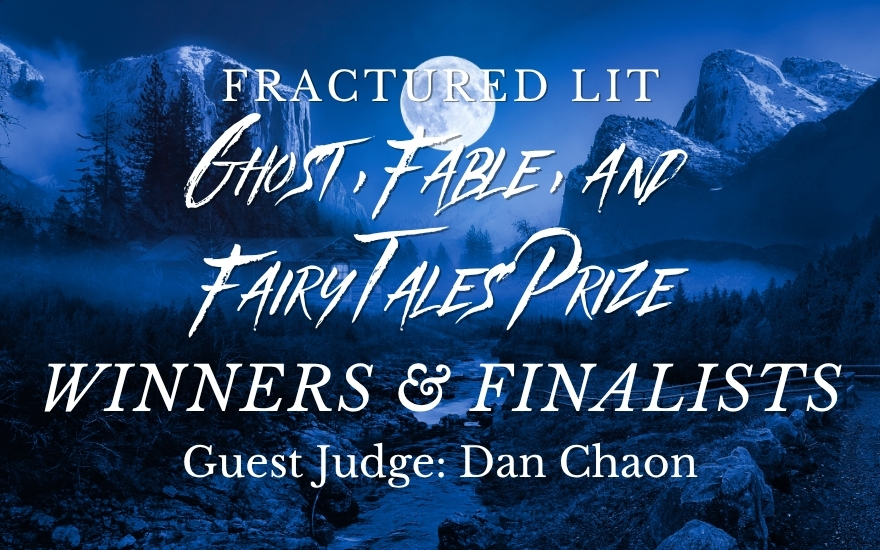
by Fractured Lit | Sep 4, 2025 | news
We’re so excited to announce the winners of this contest! Judge Dan Chaon had a difficult decision, but narrowed it down to three winners. Congratulations to everyone on the shortlist. This was a fierce competition this year!
The winners are:
1st place: Triple Body Walking by Aishatu Ado “The voice of this striking story starts out in the incantatory, formal register of a traditional fable, but grows slinky and jazzily sinister as you go along. Full of vividly eerie images of daily village life and feverish visions of the supernatural, the story evokes a genuinely fearsome creature–proud, formidable, terrifying, and yet limned with sorrow and loss.” ~Dan Chaon
2nd place: Reckoner by Adam Fell “A mysterious allegory in the tradition of Hawthorne, Barthelme and Brockmeier, “Reckoner” is sharp, witty, and sublimely, pointedly ridiculous–until the turn at the end bears down with surprising emotional heft.” ~Dan Chaon
3rd place: Owl Fantasma by Pascha Sotolongo “This one has some elements of a campfire ghost story, but the rich voice of the teenaged narrator and the vivid sense of detail and milieu add depth and feeling to the scares.” ~Dan Chaon
Also publishing: Zen Lyrics for the Carhartt Guru by Sherry Mayle
Shortlist:
- Closed for the Season by Galen David Bunting
- The Walker at Night by Simon Capobianco
- Wolfie by Danielle Claro
- Bakunawa and the Seven Sisters by Nathalie De Los Santos
- Windows into the Solar System by Jaclyn Eccesso
- In the Hedgerow by Lindsey Godfrey Eccles
- Reckoner by Adam Fell
- Disenchanted by Lisa Ferranti
- Out of the Woods by Jo Gatford
- Triple Body Walking by Aishatu Ado
- Song by Hana Jabr
- The Ethics of Hematophagy by Alison Leigh Jones
- My Mother the Sea by Sarah Lineberry
- Zen Lyrics for the Carhartt Guru by Sherry Mayle
- The Ghost of No Regret by Cristina Osmena
- Almalette by Mar Ovsheid
- The Return by Katie Sakanai
- The 6:42 A.M. Caltrain from San Jose by Holly Sewell
- The Invisible Wild by Alan Sincic
- OWL FANTASMA by Pascha Sotolongo
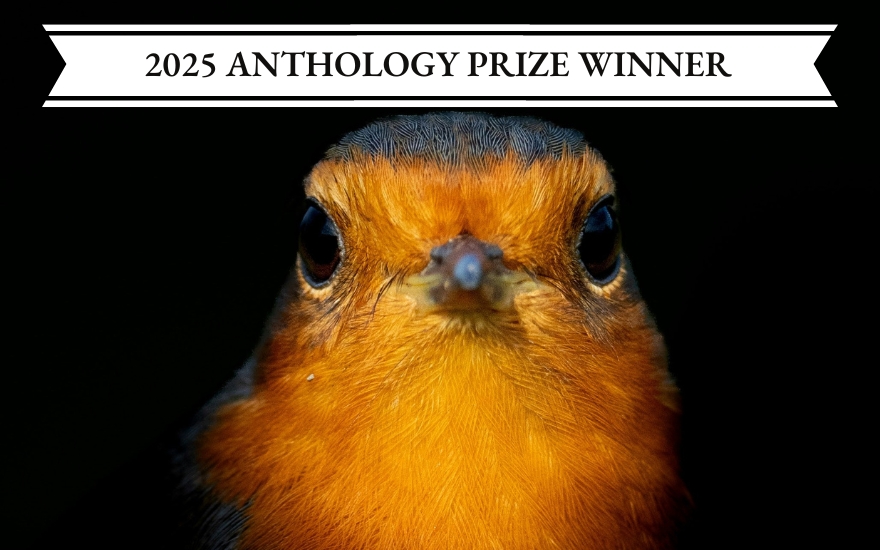
by Laura Theis | Sep 2, 2025 | contest winner, flash fiction
I.
You are still little, and your neighbour has a cat called Moonface.
An impossibly beautiful creature, all languor and white fluff and huge beryl eyes, and yet, as should be expected of her kind, a sadist and a killer.
Moonface is in the habit of decorating the edge of the decking with small dead bodies, half-chewed pieces of voles and frogs and dormice, now she has left a grey-and-red feather ball that had once been a baby robin. You pick it up and hold it, the softest, most delicate thing you’ve ever touched. You take a breath, eyes closed, little face scrunched up, and imagine that you can feel the tiniest heartbeat, faint and rapid, then a flutter between your palms. When you open your eyes, so does the robin. You look at each other for a long moment until the baby bird gives the gentlest chirp. You carry him into your bedroom and feed him blueberries and rum-soaked raisins; you will him to be alive and well with the full force of your five-year-old being until his wounds have healed and he is strong enough to re-join his family.
II.
You are a scrawny teenager at Ruby’s birthday sleepover, jumping on mattresses in neon print pyjamas, telling ghost stories, and eating ‘midnight soup’ at ten o’clock, feeling incredibly grown-up. You wake up in the middle of the night, needing to pee, and traipse around the landing on tiptoes until you find the door to the unfamiliar bathroom.
Once inside, you feel around for a light switch, but, incapable of finding one, you settle for the moonlight flooding in through the skylight. You are just washing your hands when you hear a sharp click from the direction of the door – the key being turned in the lock. You had completely forgotten about locking up – none of the rooms in your own house have locks, not even the bathrooms. You turn your head and see the dark outline of a tall boy standing next to the door. Ruby’s brother, Patrick.
“Sorry, I forgot to lock,” you whisper. “I’ll be right out of your hair.”
And you try to squeeze past him and unlock the door again. He grabs your wrists.
“Not so fast, pretty bird.”
“Please, Patrick…”
“Tell you what, I’ll let you out if you give me a little kiss.”
You try to wriggle free, but it is an unfair fight, and he just tightens his grip and laughs.
“Don’t be such a killjoy, all I’m asking for is one little…”
He is interrupted by a loud thump, a high-pitched screech, and a sudden flurry of wing flaps. A large barn owl has somehow managed to fly in through the half-open skylight, and it lands on your shoulder and perches there, hooting. You feel its weight, the claws burrowing into your shoulder through the thin fabric of your pyjamas, and you relax into the owl’s oddly painless grip, knowing you have somehow, inexplicably, won the fight. You free your wrists and, with Patrick just standing there gaping, you unlock the door and walk out past him and back into Ruby’s bedroom filled with snoring girls, your cheek pressed into the soft feathers of the saviour on your shoulder. The owl stays until you fall asleep, nodding, eyes glowing amber. By the morning, it has disappeared, and Patrick gives you a glance over the breakfast table, but never says anything.
III.
You’re living in the city, quite cut off from the gardens and nature and birdsong you grew up with, and begin to experiment with scavenger crows. You do it unintentionally, more as a mind-calming exercise than anything, the way other girls clutch their keys and pepper sprays in their handbags or pretend to be on the phone when walking alone in a scary neighbourhood.
You walk weaponless, humming to yourself, and whenever you hear footsteps coming up behind you, you imagine a murder of crows standing guard and watching on the rooftops above.
Depending on how anxious you are, you start with as little as three and let them grow exponentially in your mind, you look up, and there they are, unfailingly, cawing to each other across power lines, as if sharing a joke.
Their presence gives you the confidence to wear what you please, to walk any route at your own pace at any time of night, head held high, breathing freely.
It does not, however, make you entirely immune to catcalls or other unwanted attention. You do not usually let the birds intervene until things are getting desperate. But that time you see a guy pull a knife out of his pocket, blade sprung open in his hand, it doesn’t take more than two seconds till one of the crows has snatched it out of his grasp and flown away with it, cackling, while another three fly at him full force with claws outstretched.
IV.
Some mornings, you get up at the crack of dawn just to stand on the rooftop and colour the early sky with swirling clouds of parrots and flamingos and birds of paradise. Eagles and vultures, even albatrosses.
They all come, like clockwork.
V.
The fact that you constantly surround yourself with birds doesn’t draw as much attention as one might think. This is a jaded city. Your friends are all oblivious to the extent of your gift, and when one of your more observant housemates once questions you about the presence of a black swan in the bathtub or a gaggle of peacocks on the arms of the coat stand, you calmly explain that a) you are an eccentric bird enthusiast, and don’t we all have our quirks? and b) the collective noun for peacock is actually ‘an ostentation’.
VI.
Only your lover really knows about what you can do.
“What is your favourite thing about your power?” she whispers as you are lying in bed together, spooning, dozing.
“Delaying the damn dawn chorus,” you yawn. “Hands down.”

by Andrew Stancek | Aug 28, 2025 | contest winner, flash fiction
The couple at the next table has brought a three-year-old to the wedding reception. Martha sports a pinched look, but we do not speak. Words have failed us. The child’s mother pours herself a third refill from the bottle of red; the father devours a shrimp cocktail. Their eyes tick everywhere except towards their bundle of joy, Myles, who careens from table to table, tugs on table cloths, shrieks, wiggles out of embraces. He knocks over two wine glasses and a vase; his parents fail to notice. The free bar, I was pleased to discover, serves Brut and Stolichnaya vodka.
***
The men’s formal wear market is on life support. Curly, my boss, has waved goodbye to three of his fellow regional managers, reigns as a newly-minted capo dei capi. On Thursday, he called me into his office, overflowing with sale shirts and ties, for a warning.
“A layoff is coming. You’ll need to double your sales.”
His shaved head gleamed; the missing eyebrows reinforced his look of a wannabe wrestler.
***
Zen emphasizes self-restraint and insight into the mind. In The Flower Sermon, Buddha holds up a flower, wordlessly, and Mahakasyapa smiles, understanding. I practice chants, breathe ‘Om’, dismiss impatience. Large gatherings, throbbing with jollity and relatives’ disapproval, remain a challenge. I close my eyes, inhale.
***
Martha and I ended our happy union two weeks ago, eighteen months after our own exuberant wedding. On Wednesday, on the phone, she sizzled we committed, I absolutely will not go to a wedding alone, I will NOT tell Hilary, my lifelong friend, that you and I have split. You’d better suck in your gut and spend one more evening of your precious life with me. The chicken we just ate was drier than the Sahara and the carrot mush I could serve to Myles, if anyone ever catches him. He rolls on the dance floor, trips dancers, wails as a burly man snags him. Gifted with a frothy strawberry concoction, he pipes down and slurps.
***
I started out selling jackets, tuxes, cummerbunds and suspenders in my father’s store, as soon as I turned fourteen. Every weekend, I flashed smiles with a measuring tape around my neck, pins in my mouth, ready for alterations. Going home on the subway, I’d classify every man, standing or sitting: 34 short, 44 tall, 50 extra tall. I learned hemming at eighteen. When father sold his store to the chain, he told me I was set for life, that suits will never go out of style, that there’ll always be weddings. He died basking on a Florida golf course, better off not knowing about a pandemic, about weddings in polo shirts and shorts. Curly used to sell car parts, muscled his way up to management, through a connection to the conglomerates that preside over assorted retail businesses. To him a sixteen and a half and a seventeen neck is all the same.
***
The meditator, in Hongzhi’s practice, strives to be aware of the totality of phenomena, instead of focusing on a single object, learns to cultivate the empty field. In Japan, a follower can blow Zen by playing a shakuhachi bamboo flute. I have savings: once I leave behind Curly and pleated bib shirts, I will fly to Takahama.
***
The volume of the music has increased; the lights have dimmed. The woman Martha is talking to has a wandering eye, gives me a “I’ll give you my phone number” look. The DJ has put on “Wasn’t That A Party”, much too soon. Everything is happening too soon. I’m not thirty anymore. This morning, I could not zip up my black pants; instead of a session with my sensei, I rushed to the mall in search of a better fit.
We should have had a baby. We should have tried harder. We should have slowed down the merry-go-round.
I exhale, center, lead Martha to try a new dance.





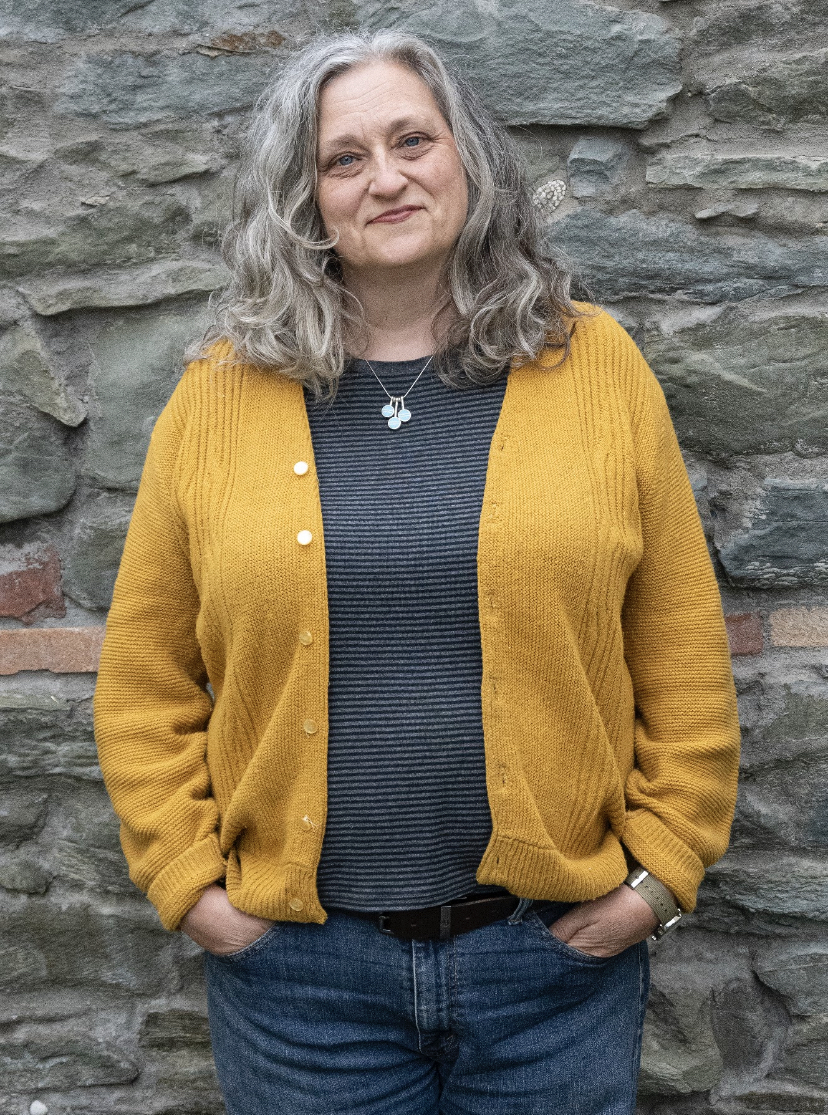






Recent Comments